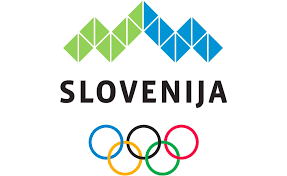The Olympic Committee of Slovenia Association of Sports Federations (NOC Slovenia) is pleased to be a partner in the new Erasmus+ Project named “Strengthening Response Mechanism for Safeguarding in European Sports” (SAFE HARBOUR), which is coordinated by the European Olympic Committees EU Office (EOC EU Office). This initiative is dedicated to enhancing safeguarding mechanisms across European sport, creating safer environments for all.
About NOC Slovenia

NOC Slovenia is the central non-governmental sports organisation in Slovenia. Established on October 15, 1991, following Slovenia’s independence, it became the official representative of Slovenian sports within the international Olympic movement. NOC Slovenia is recognised by the International Olympic Committee (IOC) and the European Olympic Committees (EOC), serving as a unifying body for sports development in Slovenia.
The primary objectives of NOC Slovenia include promoting Olympic values, ensuring the participation of Slovenian athletes in international competitions such as the Olympic Games, European Games, and Mediterranean Games, and supporting the growth of sports infrastructure and athlete development. The organisation also plays a key role in sports diplomacy, advocating for Slovenian sports interests on a global stage.
NOC Slovenia operates through various commissions and councils that address key areas such as elite sports, grassroots sports, athlete welfare, marketing, and international cooperation. It oversees funding distribution for sports programs and collaborates with national federations, governmental institutions, and private sector partners to enhance the sporting ecosystem in Slovenia.
An important part of NOC Slovenia’s mission is safeguarding sports integrity, ensuring fair play, and fostering a safe and inclusive sports environment. The organisation is actively involved in anti-doping measures, ethics in sports, and safeguarding policies to protect athletes from abuse and misconduct.
Currently, NOC Slovenia includes over 80 national sports federations and collaborates with regional sports organisations and clubs. It maintains strong ties with Slovenian Olympians through the Club of Slovenian Olympians and actively promotes the dual-career development of athletes to support their transition beyond competitive sports. Through strategic initiatives, educational programs, and advocacy, NOC Slovenia continues to shape the future of Slovenian sports while upholding the values of Olympism.
The work of NOC Slovenia on safeguarding in sports to date
NOC Slovenia has been at the forefront of safeguarding in sports in Slovenian sports, implementing comprehensive policies and initiatives to ensure a safe and inclusive environment for all athletes. Over the years, NOC Slovenia has recognised the importance of protecting athletes from various forms of abuse, harassment, and discrimination, aligning its strategies with international safeguarding standards.
One of the key steps in NOC Slovenia’s safeguarding efforts was the establishment of a dedicated whistleblower application (operating 24/7) and the creation of educational resources for athletes, coaches, and sports administrators. The organisation has actively participated in EU projects focused on athlete protection, such as the BESST, GUARD and GRASS, which provide practical tools for sports organisations to implement safeguarding measures effectively.
NOC Slovenia’s safeguarding framework includes awareness campaigns, training sessions, and workshops aimed at educating stakeholders on recognizing and preventing misconduct in sports. As mentioned, NOC Slovenia has also developed reporting mechanisms that allow athletes and sports professionals to confidentially report any safeguarding concerns.
Furthermore, NOC Slovenia has worked closely with governmental agencies and legal experts to refine legislation and enforcement mechanisms related to athlete protection. This includes contributions to Slovenia’s national sports policies and advocacy for stronger legal protections against abuse in sports.
The safeguarding efforts of NOC Slovenia continue to evolve, with an increasing emphasis on mental health support, athlete well-being, and gender equality in sports. By fostering a culture of safety, respect, and inclusivity, the Olympic Committee of Slovenia is committed to protecting athletes and maintaining the integrity of Slovenian sports.
The role of NOC Slovenia within the SAFE HARBOUR project
Within the SAFE HARBOUR project, NOC Slovenia will play a critical role in tailoring the European Response framework to its national context. Responsibilities include drafting a National Strategy to guide safeguarding actions, delivering mandatory training for the leadership and National Federations, and hosting a National Multiplier Event to raise awareness among stakeholders. Additionally, NOC Slovenia will engage in peer-to-peer roundtables, contribute to thematic seminars, and disseminate the project results through various channels. By actively participating in all project activities, NOC Slovenia will help ensure the successful implementation and sustainability of safeguarding measures.
Background information on the SAFE HARBOUR project
The SAFE HARBOUR project, short for “Strengthening Response Mechanisms for Safeguarding in European Sport”, is a 30-month project co-funded by the European Union through the Erasmus+ Sport Programme 2024. Coordinated by the EOC EU Office, the consortium includes Thomas More and Asser Institute as experts on safeguarding, human rights and law, 2 International Federations (International Biathlon Union and International Ice Hockey Federations), and 20 National Olympic Committees (Belgium, Bosnia and Herzegovina, Croatia, Cyprus, Czechia, Denmark, Germany, Hungary, Kosovo, Latvia, Lithuania, Luxembourg, Malta, Montenegro, Norway, Poland, Portugal, Romania, Slovakia and Slovenia). Additionally, the International Olympic Committee (IOC) is involved as an outside resource.
The project seeks to strengthen the capacity of European NOCs and Federations to address safeguarding concerns by identifying gaps, developing a European Response framework, and fostering collaboration. This framework will be adapted to national contexts, complemented by training and awareness initiatives to enhance safeguarding measures at both national and European levels. Therefore, SAFE HARBOUR aims to equip partner NOCs and Federations with the tools and confidence to implement effective safeguarding measures while establishing a robust support network for Safeguarding Officers and laying the groundwork for a future IOC Regional Safeguarding Hub.

![]()